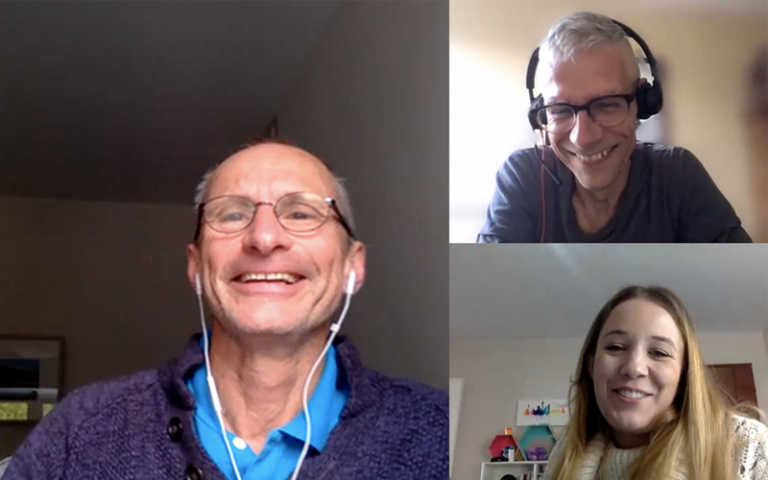Exploring Southern African climate systems with students across four countries
A series of workshops led by UCL Professor Anson Mackay and the University of the Witwatersrand (Wits) brought together students from across South Africa, Lesotho, Botswana and UCL

18 March 2022
Supported by the UCL-Wits University Strategic Partner Funds, UCL professors Anson Mackay and Jonathan Holmes (UCL Geography) collaborated with Professor Jennifer Fitchett (Wits) to deliver a series of virtual workshops on Southern African climatology and the application of stable isotopes in an African context.
The workshops, which are part of a wider project exploring isotopes to link water security to regional climate patterns in Southern Africa, brought together students from UCL, Wits, University of Lesotho and the Botswana International University for Science & Technology (BIUST) to collaborate on practical data analysis and group work activities.
65 undergraduate, masters and PhD students joined two events in May 2021, with participants dialling in from not only the UK and South Africa, but also Kenya, Botswana, Reunion Island and Japan.
Reflecting on the virtual delivery of the workshops, Professor Anson Mackay, the UCL lead for the project, said: “Webinars should be essential components of international collaboration, especially in terms of providing lectures and materials that are accessible to more people, have wider reach, and are more sustainable in terms of carbon production. However, webinars less easily foster inter-personal relationships that can develop among students and between students and staff. Nevertheless, these are not essential for all cases or to all people.”
The students learned from leading scientists from the UK, such as Professor Melanie Leng (British Geological Survey), as well as from southern African countries, including Dr Richard Mazebedi (BIUST) and Professor Chris Curtis (University of Johannesburg).
Combining such diverse expertise was made possible by delivering the workshops virtually to reduce the cost and time commitments for speakers and attendees alike. This meant the students could benefit from in-depth knowledge on local climate systems and isotopes and pair it with technical and methodological analyses from the UK.
Professor Jennifer Fitchett, the Wits University project lead, added: “The online space enabled the meeting and engagement of students. If these had been held as two in-person workshops, one in SA and one in the UK, the students would have met the PIs but wouldn't have had the chance to interact with each other. I think this project widened perspectives in a really useful way.”
The experiences have opened up global career opportunities for the students involved. One of Jennifer’s students from South Africa was accepted into a PhD programme in the Netherlands after the workshop had inspired her to study further overseas. Another of her students has taken up a job in Communications at the Institute for Development Studies at the University of Surrey and two students are interested in applying to do their PhDs in the UK.
This article is part of a series which explores how UCL academics integrate African perspectives and voices into research and teaching activities related to the continent. The distance, high travel costs, and development funding cuts make meaningful contact with African counterparts more difficult, but colleagues across UCL are finding creative and innovative ways of delivering collaborative projects during and beyond the pandemic.
More information
For the latest news about UCL’s international activity, partnerships and opportunities, subscribe to the bimonthly Global Update newsletter.
 Close
Close

